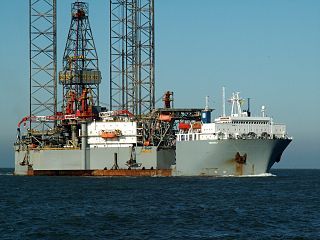Cheap Energy Means Economic Growth, But It’s a Bit More Complicated

I didn’t really take the fellow to task on this, but I responded with something I believe everyone should be aware of and use to inform their thinking on the subject: the only issue with cheap energy isn’t its effects on the economy; when that energy is derived from fossil fuels, it’s destroying the environment. And this, of course, is becoming more the case with each passing year; where what we mean by “cheap energy” is stuff like shale gas and tar sands.
I’m not an opponent of economic growth, though I do believe that there are limits to growth on a planet of finite size with a finite amount of natural resources. Having said this, there are certain areas of the planet that need to be consuming more resources, to stimulate the improvement of conditions for the poorest one-third of the population, boosting productivity, education, and reducing women’s fertility rates.
In any case, what all people of conscience should oppose is growth that comes directly and immediately at the expense of environmental catastrophe: climate change, ocean acidification, loss of biodiversity, skyrocketing rates of childhood cancers, etc. We, the peoples of Earth, have no excuse for not developing a strategy that steadily migrates us away from fossil fuels over the coming decades. We need a path toward the sustainable generation and consumption of energy, one that says that we will not permit the extraction of the last molecule of hydrocarbons from the Earth’s crust, merely to drive the GDP numbers and further enrich a few billionaires.

Very interesting article. Thank you Craig.
GDP / Wikipedia: Gross domestic product (GDP) is the market value of all officially recognized final goods and services produced within a country in a given period of time.
Craig: Again and again, all that matters around the world is economic growth now, but fast money goes away fast. The greed to get more in less time has always brought damage in some way or another. If getting more money into the pockets of the billionaires that really don’t need it is driving everybody’s future into the ground, why do we always fall for the same lies? Economic growth needs “cheap” energy, but “cheap” energy has brought famine, climate damage, water poisoning, ground poisoning, poverty and health damage to everybody. That is a lot more expensive! The focus is off, the cost is not falling on the “responsible” billionaires, but on the poor people of the world.
We read of $7 million dollars “invested” in renewable energy for the native americans, but we also hear about $ 8 BILLION for fossil fuel investment, what a disproportionate injustice.
We still see politicians working for fossil fuels. Give a tip to the renewables guys!